News
Fantasia 2020: Brea Grant on ’12 Hour Shift’, ‘Lucky’, and the Love of Genre
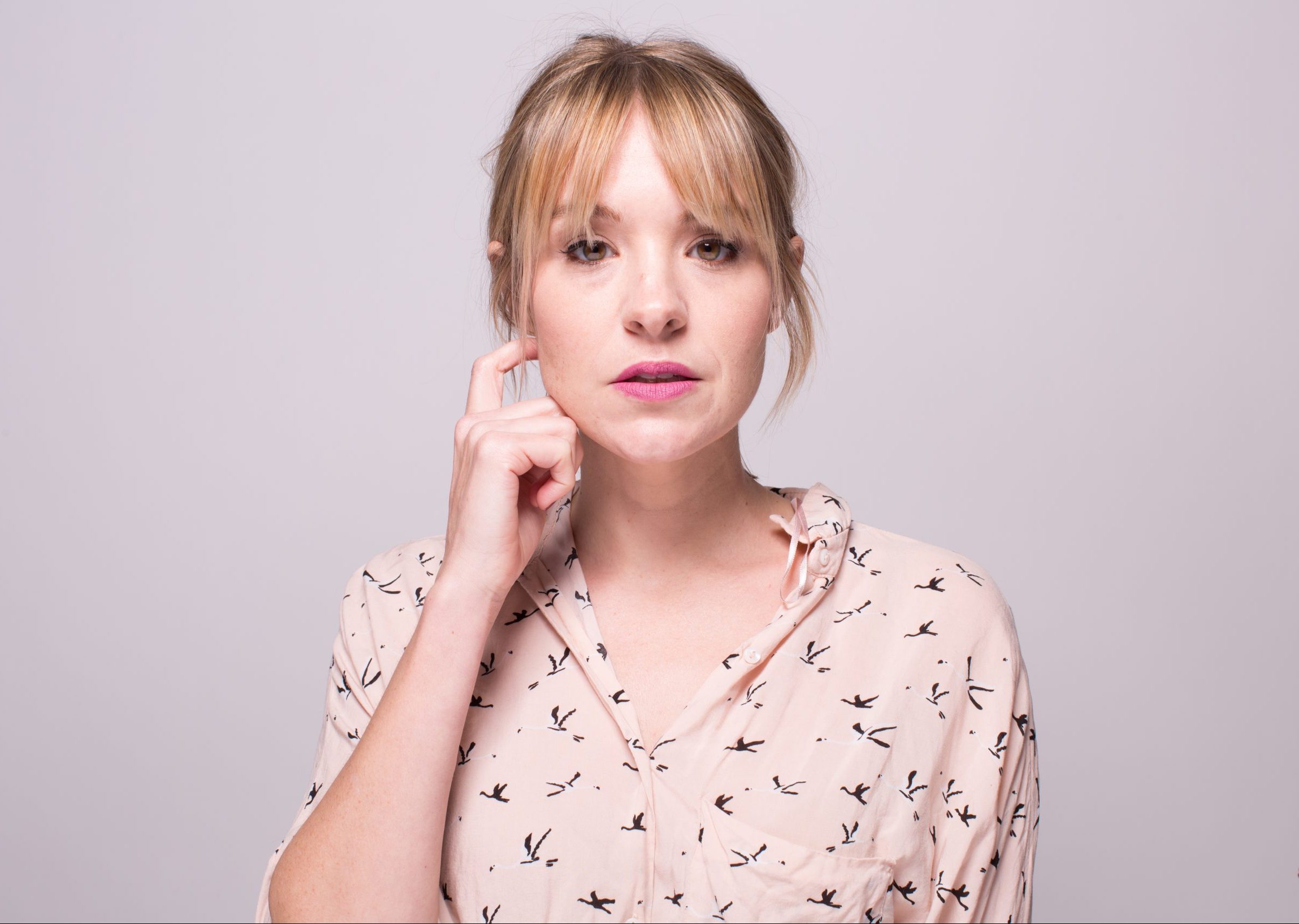
Brea Grant is perhaps best known for her work as an actress (Beyond the Gates, Heroes, Dexter, After Midnight), but she’s proven herself to be a talented writer and director with a flair for genre cinema. At this year’s Fantasia Film Festival, she had two substantial projects premiering — 12 Hour Shift and Lucky.
12 Hour Shift — which Grant wrote and directed — is a darkly comedic organ heist film set in a dingy Arkansas hospital in 1999. The film stars genre favorite Angela Bettis (May, The Woman) and Chloe Farnworth (Departure), with David Arquette (Scream) in a stellar supporting role.
For Lucky, Grant wrote the script and plays the leading role. It’s a biting exploration of societal reactions of violence against women, spun through a satirical lens (you can read my full review here).
I had a digital sit down with Grant at this year’s Fantasia Festival, where we discussed her two festival-favored projects, the 90s, horror tropes, and her love of genre.
Kelly McNeely: So with 12 Hour Shift, you’ve got this amazing sort of organ harvest heist movie, which is such a cool concept for a movie, I love that it’s a dark comedy as well and that it’s got these really strong female leads. What was the genesis of that movie? What were your inspirations and influences when writing and directing?
Brea Grant: I feel like movies sort of end up coming from just so many sources, and I wish there was one specific one, but the ones that I’ll kind of throw at you, are I love urban legends from the 90s. I always loved the one about the person who woke up in their bathtub with their kidney missing, and someone had written on the mirror, like, “go to the hospital immediately”. And you know, the weird thing about growing up in a small town is you hear these urban legends, and I’d get convinced that it was something that happened in my small town, like I thought that that was a true story that happened in Marshall, Texas. So I think I’ve always kept that with me.
And this is sort of my story of what happened to that kidney, or why that kidney was missing — sort of a weird fucked-up version of that story. I think that and then also just, I’m from a small town, I’ve always wanted to write a crazy, wild story that has a lot of characters that remind meof people I grew up with. And I think those are the two main things that kind of got it going.
Now, with that urban legend again, from the 90s, was that one of the reasons why you wanted to set it in 1999?
Yeah! And also, I was a teenager in the 90s, and when I was writing the story and it was taking place in my town, it made more sense for me to kind of think of the town as I knew it. Because I haven’t lived there since I was 18, and I haven’t lived in Texas in almost 10 years. So, for me, it was about writing about the south and stuff and the small town worlds, but the way that I sort of know them.
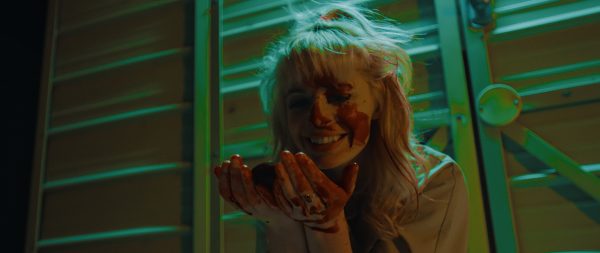
12 Hour Shift
I love that it’s got these really strong, powerful women in leading roles, because you don’t really see a ton of movies that have women in their 40s leading the show, which I think is a really fantastic choice. Was that something that you’ve had in mind when writing the script, or did that sort of come about in casting?
Thank you for noticing, no one has brought that up to me! You know, now that I’ve done a movie with two of my three main actresses being in their 40s, it’s all I want to do! [laughs] Because they’re so experienced, and they just take everything both seriously but also can really roll with the punches in an interesting way. I mean, Nikea Gamby-Turner, it’s one of her first leads in a movie and she was so wonderful and she just has a great aura on set, like she just brings so much happiness to set, and she’s a cancer survivor, and sort of everything she does she kind of takes with this, like a grain of salt, but really appreciates it at the same time.
With the writing, no! Actually the character of Mandy, when writing, I thought I might play her. But as we got closer to production, and we got greenlit, I wanted to really focus on and make sure the movie was the best possible movie I can make. And I know that unfortunately, when I’m acting, my directing suffers, and vice versa. And I’ve always been a fan of Angela’s and so when I decided not to be in it, we reached out to her. So it was actually written closer to the age of the Regina character, where they were about the same age. But now that I’ve done this, I’m telling you, like all I want to do is movies about women in their 40s and 50s. [laughs]
I love it too, especially set in the 90s. I feel like there is a bit of an edge to the 90s that really comes through in her performance, because, like, she’s just done with it, she’s just 100% done with it, and it reads so well, I think.
Yeah, it’s a bit of, like, the women that I knew in the 90s who were a little bit older than me, and they were so over it, and they all had that kind of hair that was, like, Maroon? You know, the Maroon 90s color? And I loved them so much. And they were so much more worldly than I was. I think that’s what Angela ended up embodying. And I think it super worked for this movie.
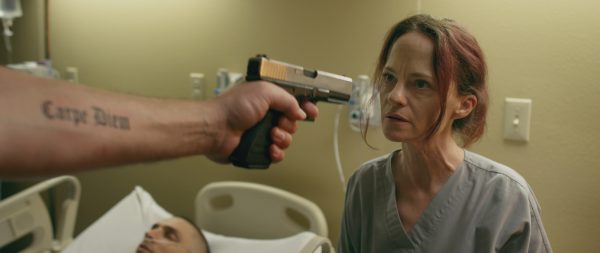
12 Hour Shift
Now Lucky, which I hear just got picked up by Shudder — so congratulations! — speaking of women and female roles, it’s very on-point in the way it discusses the relationships between women and other women, and women and men, that whole dialogue is really clever, I think. Where did the script come from? And what do you hope audiences take away from that film, because I feel like male and female audiences are probably going to nitpick at different little things and see different things out of it.
I think so, we had that response in test screenings where we were getting really different feedback. I actually never attended the test screens, but Natasha [Kermani, director] would send me all of the notes. And it was just really divided on gender lines of what their notes were, and the things they felt it needed or did not need. It’s a complicated movie, and I like that about it, that it has this complicated female lead, like 12 Hour Shift. I wasn’t trying to write a hero for either one, I wasn’t going for a Final Girl that makes all the right choices. I wanted to write these complicated female protagonists, and both are a little bit of an antihero in different ways.
I think people can take away from Lucky what they want. I mean, for me, I was kind of trying to write both a universal story about women and violence, violence against women, and the way that it is happening everywhere, whether or not you’re willing to see outside of your own world, if that makes sense. So the character of May is seeing all this very subjectively, and she reacts to it very subjectively, and a way that she thinks is the right way. And I wanted to show how maybe that is complicated. She doesn’t always make the best choices. She isn’t the most likable character, she has complications. And that is really interesting to me. I don’t think we have to have these perfect female leads when we’re watching movies.
Yeah, I think it’s more interesting to have these unapologetic female leads, because you don’t see that very often. In horror movies, there’s usually a little bit more complexities, but with the trope of the Final Girl, you don’t really see that Final Woman as much. Where she’s like, been through it, and she’s experienced more, and she’s not running around trying to save the kids. She’s running around saving herself and I really love that.
Okay, good. The trope of this nice virgin teenager I feel like I have seen, and I love those movies and I’m very grateful to horror for all of the amazing female protagonists that we have, I just wanted to do something more complicated.
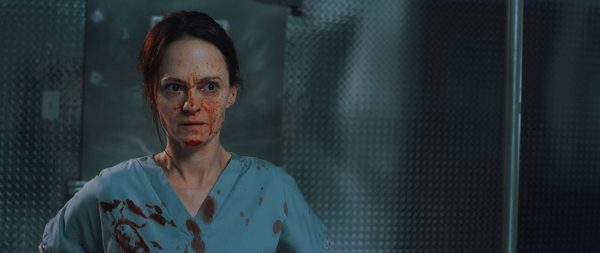
12 Hour Shift
Being a horror fan, as I know you are, when you were writing it did you kind of have in mind subverting those tropes? I think with the character of the Man as well, I really like that he’s not your typical — or stereotypical — slasher character. He’s not like this big, burly, scary guy. He’s just this guy. Did you have that in mind to play with those stereotypes a little bit when you were writing the script?
Well, the look of the man I have to give to Natasha. In the script, there was very little description. It was basically just that he wears a mask and you can’t tell who he is. But she came up with the idea that he was not a huge guy. He’s not Leatherface, he’s not someone that you can pick out of a crowd, which was really important, and he’s kind of more clean cut, which I do think is sort of scary, the more Hannibal scary side of things. But yeah, I was aware of all slasher movies. And I like slasher movies. But I didn’t want the movie to be about the man.
I think that what ends up happening in horror, and it’s not necessarily a bad thing, is that we watch Friday the 13th and Nightmare on Elm Street because we’re tuning in for Freddy Krueger, right? We’re tuning in for the bad guys, and I want people to tune in for the female lead instead of for this guy. It’s funny, when I was pitching it around, people were like, but how do we make the sequel? Because we have to make the Man someone we can recognize for the sequel, and we have to make him something, what is his next movie? And I’m like, he doesn’t get another movie [laughs] I don’t care about that guy.
I like that the man is different for each woman too, every woman has her own version of this guy, because I think we all do. There’s always like that person, you know?
Yeah, for sure. And I think if I had designed what the Man looked like for me, he would look like probably a different person than the one Natasha would design, and I think it all just comes from our personal experiences about what we’ve sort of maybe experienced when it comes to being a woman in the world.
Absolutely, yeah. Now you’ve done a lot of different roles between directing and acting, producing, writing; is there an area you’re most comfortable in, and is there an area you’d like to explore more?
Because I’ve just done so much acting, it is a place I’m quite comfortable in. I do feel challenged by it sometimes, but not as much as I used to, and I think me– just as a person — I’m always looking for a challenge. And I’m looking for the thing that scares me and the thing that will really push me to explore new parts of myself. So at this point in my life, I’m definitely leaning into the writing and the directing for different reasons. It’s interesting. COVID has really changed a lot of things. But the one thing I really like about where my career is, is that I spent quarantine writing. And I’ve gotten to work on some really cool projects, because I can do it from my laptop, which as an actor, obviously, you can’t do, and as a director, you can’t do really either — I guess unless you’re making that movie Host [laughs]. But yeah, I think comfortable acting, but the other stuff is feeling challenging, but also more fitting for my personality.
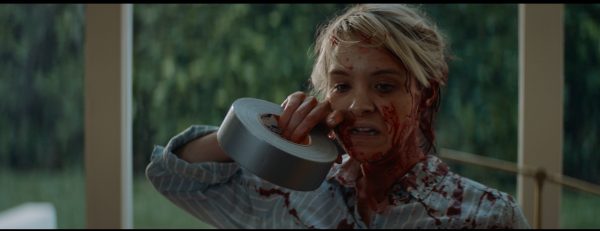
Lucky
Now again, as an actress playing this character that you wrote, when you were writing it, did you kind of have your own cadence and things in mind? Or does it sort of come out when you were acting in it? What was that process like, acting in a role that you’d written?
Well I didn’t write it for myself to be in, so I thought I might be directing it. I wasn’t sure. And I’ve had different actresses attached to it at different times before we made it. So I just always pictured a woman who had it together in a way that I never feel like I have it together [laughs]. So it’s so weird that I ended up playing this role. But when Epic wanted to make it, they came to me and they said, we would like Natasha to direct it and we’d like you to play the lead.
I did think about it for a while, if I wanted to do it, and I ended up deciding that would be a nice way for me to stay involved with a movie that I really cared about. Because I had written this character and created her, I didn’t feel like it was a huge stretch for me to kind of get into her skin. I think she’s very, very different than I am, and there are definitely days where I felt like I was bringing too much Brea into May, but I think overall it was a fun stretch for me, because I am often cast as like, somebody’s best friend or somebody’s girlfriend, and usually someone kind of bubbly, and this was obviously a little bit of a darker character.
You did a fantastic job with it. And she is very together, so when everything starts to unravel, it’s really interesting watching her dealing with that and coping with that.
Thank you. And you know, what’s so interesting, I found on the set, I had just directed 12 Hour Shift and then I went and did Lucky as an actor, and we spent a lot of time — Natasha and our costume designer, Brianna Quick, and I — looking at clothes. And that was the thing that really got me into the head of May, and Natasha’s vision for May is that her clothes are very specific. And I don’t think we use hardly anything of mine. And normally on indie movies, I bring a lot of my own clothes, and I end up wearing a lot of my own clothes. But I was wearing these clothes that are just not the kind of things I would normally put on my own body. I never wear a button up, ever, [laughs] and May loves a button up. But it helps me to really see May as a different kind of person than I am.
Now again, I know you’re a fan of the horror genre, and genre in general. Do you want to keep working and writing and directing genre films? Is that something you really enjoy doing?
Yeah! Yeah. It’s very fun to get to make stuff in the genre world because you can be really creative, and I think because it’s what I consume as a viewer, It’s what I’m always going to be writing and be drawn to. I think for me, I love the genre, I definitely add a lot of comedy to it. So I end up doing a lot of things that are satirical or horror comedy.
But my favorite thing to do is play with horror tropes. I love, I love that the horror audience has this collective knowledge of the tropes and the things that we’re doing. And I can use that collective knowledge and make something on top of that. That’s 100% what I want to be doing all the time. But I just came off directing a TV show that was science fiction, and I love sci-fi, I love big things in space, that is just this whole other thing. But it’s the same kind of stuff where you’re just getting to be imaginative. We’re just kids. We’re just kids getting to play what we like to watch.
One of the things I love about the horror genre is that it really feels like there are no rules. If you make a drama or comedy you kind of have to stick with a lot of “real world” rules. If there’s technology involved, you have to stick within those rules, but with horror you can throw that out the window and do as much as you want, and just kind of work it into the script, or you don’t have to work into the script, you can just make it not be a thing. And it’s really interesting how it gives so much creative opportunity.
Yeah, and I think the audience likes it, they like the creativity of all of it, and they like you to bend the rules a little bit. I like that aspect of the genre itself.
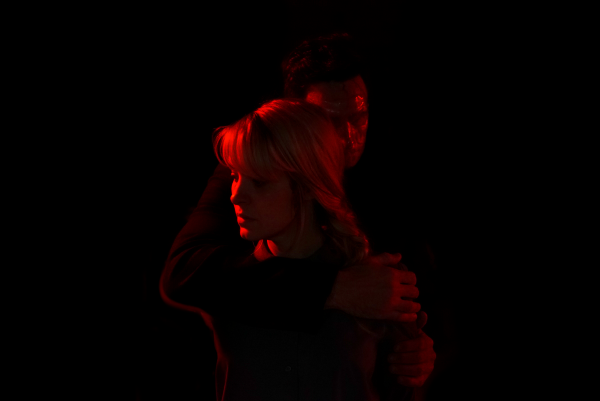
Lucky
Do you have a favorite horror genre or subgenre?
Yeah, I mean, what would you call that, the ones that are playing with tropes. Those are the ones that I tend to be drawn to. And horror comedy. I love a horror comedy and I love monster movies in any way shape or form. I kind of miss the Gremlins aspect of horror where they are the kind of “all ages” like cute monster, but I also love a straight up monster movie. One that I love is Attack the Block, which I think of as like a monster movie.
That’s one of my favorite movies!
Oh my god, it’s such a great movie. And because I think it’s hard to do it on a budget, they don’t get made as often. But I do really like them and the trope — I don’t know the name of this — like trope subversion horror. Like Tucker and Dale vs Evil, things like that, right? Like you’re playing with this collective knowledge. I love that.
Yeah! Dude Bro Party Massacre III is a really good example of that as well.
Yeah, that’s a good one! Yeah, yeah, yeah. Where you’re like “we know” and there’s a wink to the audience. I love a wink.
'Civil War' Review: Is It Worth Watching?
Follow our new YouTube channel "Mysteries and Movies" here.
Lists
Radio Silence Movies Ranked
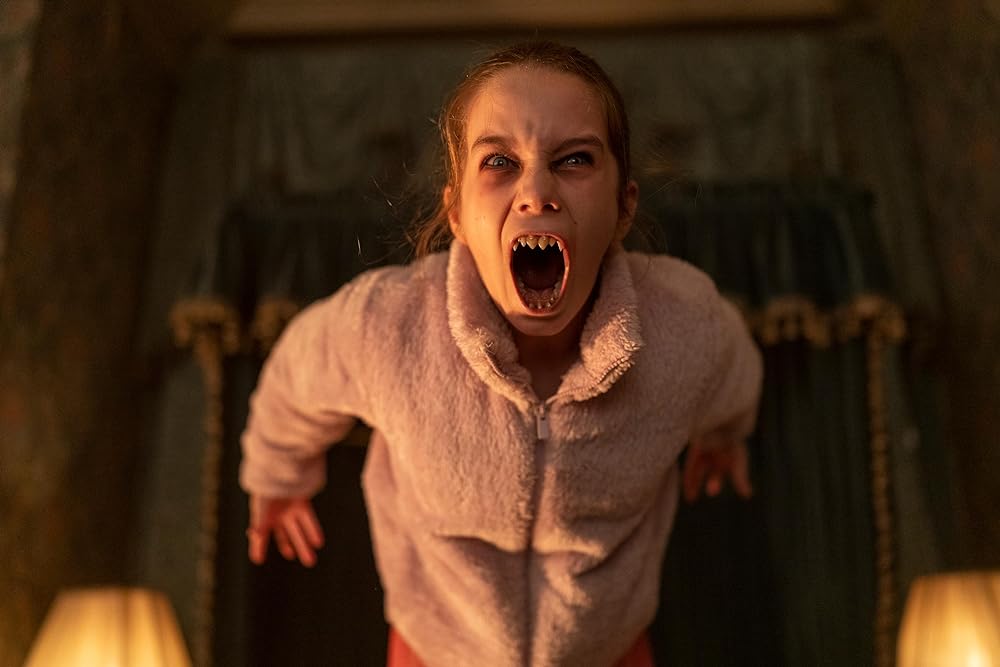
Matt Bettinelli-Olpin, Tyler Gillett, and Chad Villella are all filmmakers under the collective label called Radio Silence. Bettinelli-Olpin and Gillett are the primary directors under that moniker while Villella produces.
They have gained popularity over the past 13 years and their films have become known as having a certain Radio Silence “signature.” They are bloody, usually contain monsters, and have breakneck action sequences. Their recent film Abigail exemplifies that signature and is perhaps their best film yet. They are currently working on a reboot of John Carpenter’s Escape From New York.
We thought we would go through the list of projects they have directed and rank them from high to low. None of the movies and shorts on this list are bad, they all have their merits. These rankings from top to bottom are just ones we felt showcased their talents the best.
We didn’t include movies they produced but didn’t direct.
Abigail
An update to the second film on this list, Abagail is the natural progression of Radio Silence’s love of lockdown horror. It follows in pretty much the same footsteps of Ready or Not, but manages to go one better — make it about vampires.
Ready or Not
This film put Radio Silence on the map. While not as successful at the box office as some of their other films, Ready or Not proved that the team could step outside their limited anthology space and create a fun, thrilling, and bloody adventure-length film.
Scream (2022)
While Scream will always be a polarizing franchise, this prequel, sequel, reboot — however you want to label it showed just how much Radio Silence knew the source material. It wasn’t lazy or cash-grabby, just a good time with legendary characters we love and new ones who grew on us.
Southbound (The Way Out)
Radio Silence tosses their found footage modus operandi for this anthology film. Responsible for the bookend stories, they create a terrifying world in their segment titled The Way Out, which involves strange floating beings and some sort of time loop. It’s kind of the first time we see their work without a shaky cam. If we were to rank this entire film, it would remain at this position on the list.
V/H/S (10/31/98)
The film that started it all for Radio Silence. Or should we say the segment that started it all. Even though this isn’t feature-length what they managed to do with the time they had was very good. Their chapter was titled 10/31/98, a found-footage short involving a group of friends who crash what they think is a staged exorcism only to learn not to assume things on Halloween night.
Scream VI
Cranking up the action, moving to the big city and letting Ghostface use a shotgun, Scream VI turned the franchise on its head. Like their first one, this film played with canon and managed to win over a lot of fans in its direction, but alienated others for coloring too far outside the lines of Wes Craven’s beloved series. If any sequel was showing how the trope was going stale it was Scream VI, but it managed to squeeze some fresh blood out of this nearly three-decade mainstay.
Devil’s Due
Fairly underrated, this, Radio Silence’s first feature-length film, is a sampler of things they took from V/H/S. It was filmed in an omnipresent found footage style, showcasing a form of possession, and features clueless men. Since this was their first bonafide major studio job it’s a wonderful touchstone to see how far they have come with their storytelling.
'Civil War' Review: Is It Worth Watching?
Follow our new YouTube channel "Mysteries and Movies" here.
News
Perhaps the Scariest, Most Disturbing Series of The Year

You may have never heard of Richard Gadd, but that will probably change after this month. His mini-series Baby Reindeer just hit Netflix and it’s a terrifying deep dive into abuse, addiction, and mental illness. What is even scarier is that it’s based on Gadd’s real-life hardships.
The crux of the story is about a man named Donny Dunn played by Gadd who wants to be a stand-up comedian, but it’s not working out so well thanks to stage fright stemming from his insecurity.
One day at his day job he meets a woman named Martha, played to unhinged perfection by Jessica Gunning, who is instantly charmed by Donny’s kindness and good looks. It doesn’t take long before she nicknames him “Baby Reindeer” and begins to relentlessly stalk him. But that is just the apex of Donny’s problems, he has his own incredibly disturbing issues.
This mini-series should come with a lot of triggers, so just be warned it is not for the faint of heart. The horrors here don’t come from blood and gore, but from physical and mental abuse that go beyond any physiological thriller you may have ever seen.
“It’s very emotionally true, obviously: I was severely stalked and severely abused,” Gadd said to People, explaining why he changed some aspects of the story. “But we wanted it to exist in the sphere of art, as well as protect the people it’s based on.”
The series has gained momentum thanks to positive word-of-mouth, and Gadd is getting used to the notoriety.
“It’s clearly struck a chord,” he told The Guardian. “I really did believe in it, but it’s taken off so quickly that I do feel a bit windswept.”
You can stream Baby Reindeer on Netflix right now.
If you or someone you know has been sexually assaulted, please contact the National Sexual Assault Hotline at 1-800-656-HOPE (4673) or go to rainn.org.
'Civil War' Review: Is It Worth Watching?
Follow our new YouTube channel "Mysteries and Movies" here.
Movies
The Original ‘Beetlejuice’ Sequel Had an Interesting Location
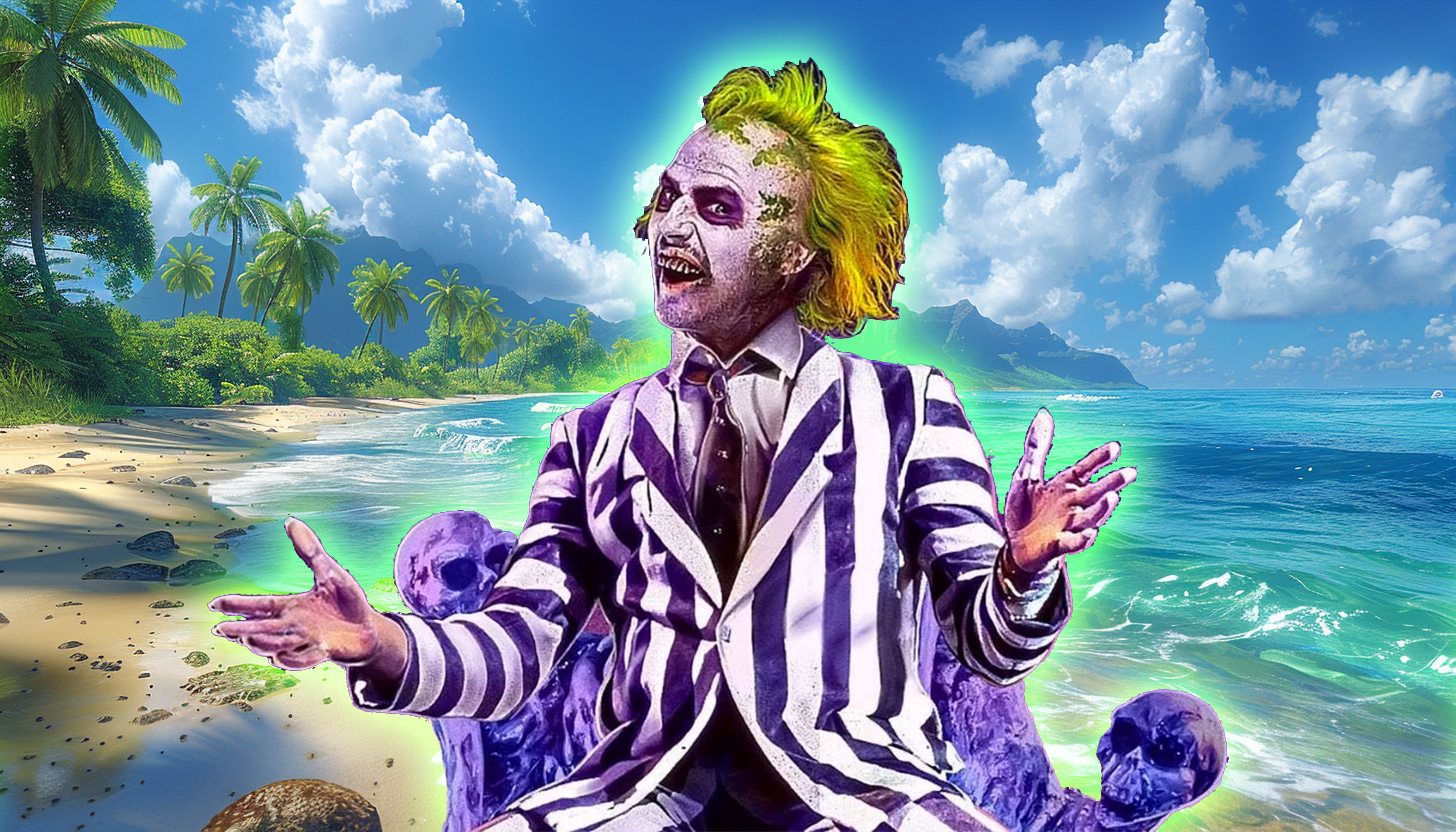
Back in the late ’80s and early ’90s sequels to hit movies weren’t as linear as they are today. It was more like “let’s re-do the situation but in a different location.” Remember Speed 2, or National Lampoon’s European Vacation? Even Aliens, as good as it is, follows a lot of the plot points of the original; people stuck on a ship, an android, a little girl in peril instead of a cat. So it makes sense that one of the most popular supernatural comedies of all time, Beetlejuice would follow the same pattern.
In 1991 Tim Burton was interested in doing a sequel to his 1988 original, it was called Beetlejuice Goes Hawaiian:
“The Deetz family moves to Hawaii to develop a resort. Construction begins, and it’s quickly discovered that the hotel will be sitting on top of an ancient burial ground. Beetlejuice comes in to save the day.”
Burton liked the script but wanted some re-writes so he asked then-hot screenwriter Daniel Waters who had just got done contributing to Heathers. He passed on the opportunity so producer David Geffen offered it to Troop Beverly Hills scribe Pamela Norris to no avail.
Eventually, Warner Bros. asked Kevin Smith to punch up Beetlejuice Goes Hawaiian, he scoffed at the idea, saying, “Didn’t we say all we needed to say in the first Beetlejuice? Must we go tropical?”
Nine years later the sequel was killed. The studio said Winona Ryder was now too old for the part and an entire re-cast needed to happen. But Burton never gave up, there were a lot of directions he wanted to take his characters, including a Disney crossover.
“We talked about lots of different things,” the director said in Entertainment Weekly. “That was early on when we were going, Beetlejuice and the Haunted Mansion, Beetlejuice Goes West, whatever. Lots of things came up.”
Fast-forward to 2011 when another script was pitched for a sequel. This time the writer of Burton’s Dark Shadows, Seth Grahame-Smith was hired and he wanted to make sure the story wasn’t a cash-grabbing remake or reboot. Four years later, in 2015, a script was approved with both Ryder and Keaton saying they would return to their respective roles. In 2017 that script was revamped and then eventually shelved in 2019.
During the time the sequel script was being tossed around in Hollywood, in 2016 an artist named Alex Murillo posted what looked like one-sheets for a Beetlejuice sequel. Although they were fabricated and had no affiliation with Warner Bros. people thought they were real.
Perhaps the virality of the artwork sparked interest in a Beetlejuice sequel once again, and finally, it was confirmed in 2022 Beetlejuice 2 had a green light from a script written by Wednesday writers Alfred Gough and Miles Millar. The star of that series Jenna Ortega signed on to the new movie with filming starting in 2023. It was also confirmed that Danny Elfman would return to do the score.
Burton and Keaton agreed that the new film titled Beetlejuice, Beetlejuice wouldn’t rely on CGI or other other forms of technology. They wanted the film to feel “handmade.” The film wrapped in November 2023.
It’s been over three decades to come up with a sequel to Beetlejuice. Hopefully, since they said aloha to Beetlejuice Goes Hawaiian there has been enough time and creativity to ensure Beetlejuice, Beetlejuice will not only honor the characters, but fans of the original.
Beetlejuice, Beetlejuice will open theatrically on September 6.
'Civil War' Review: Is It Worth Watching?
Follow our new YouTube channel "Mysteries and Movies" here.
-

 News5 days ago
News5 days agoWoman Brings Corpse Into Bank To Sign Loan Papers
-
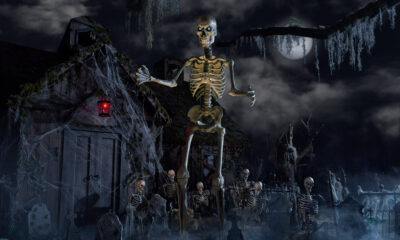
 News6 days ago
News6 days agoHome Depot’s 12-Foot Skeleton Returns with a New Friend, Plus New Life-Size Prop from Spirit Halloween
-
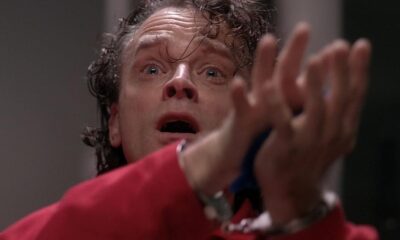
 News4 days ago
News4 days agoBrad Dourif Says He’s Retiring Except For One Important Role
-
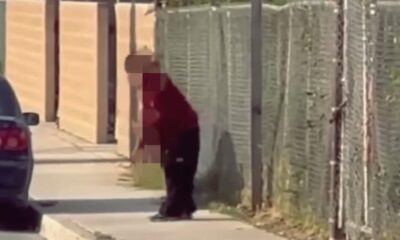
 Strange and Unusual4 days ago
Strange and Unusual4 days agoMan Arrested for Allegedly Taking a Severed Leg From Crash Site And Eating It
-
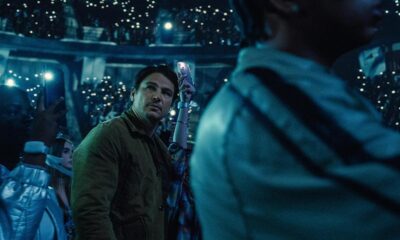
 Movies5 days ago
Movies5 days agoPart Concert, Part Horror Movie M. Night Shyamalan’s ‘Trap’ Trailer Released
-
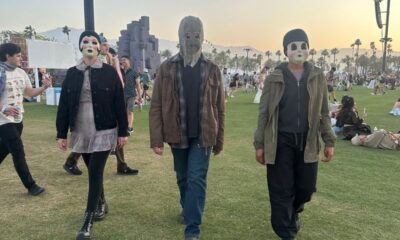
 Movies6 days ago
Movies6 days ago‘The Strangers’ Invaded Coachella in Instagramable PR Stunt
-
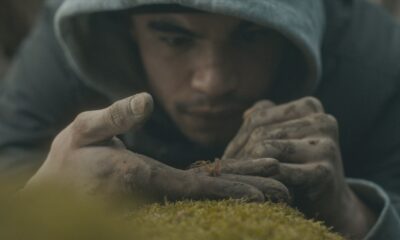
 Movies5 days ago
Movies5 days agoAnother Creepy Spider Movie Hits Shudder This Month
-
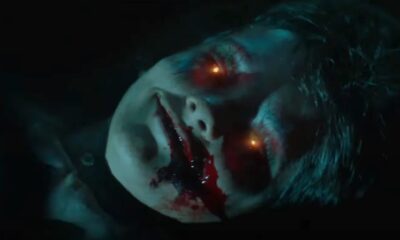
 Movies6 days ago
Movies6 days agoRenny Harlin’s Recent Horror Movie ‘Refuge’ Releasing in U.S. This Month
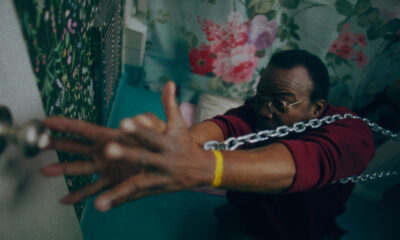

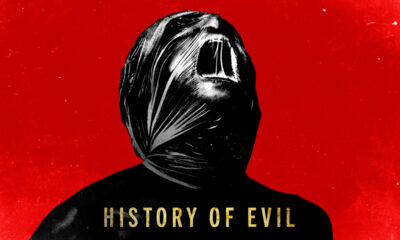

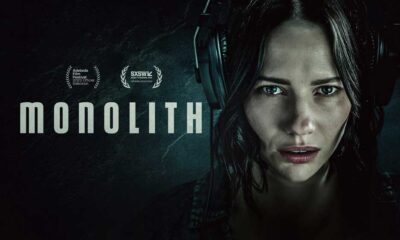


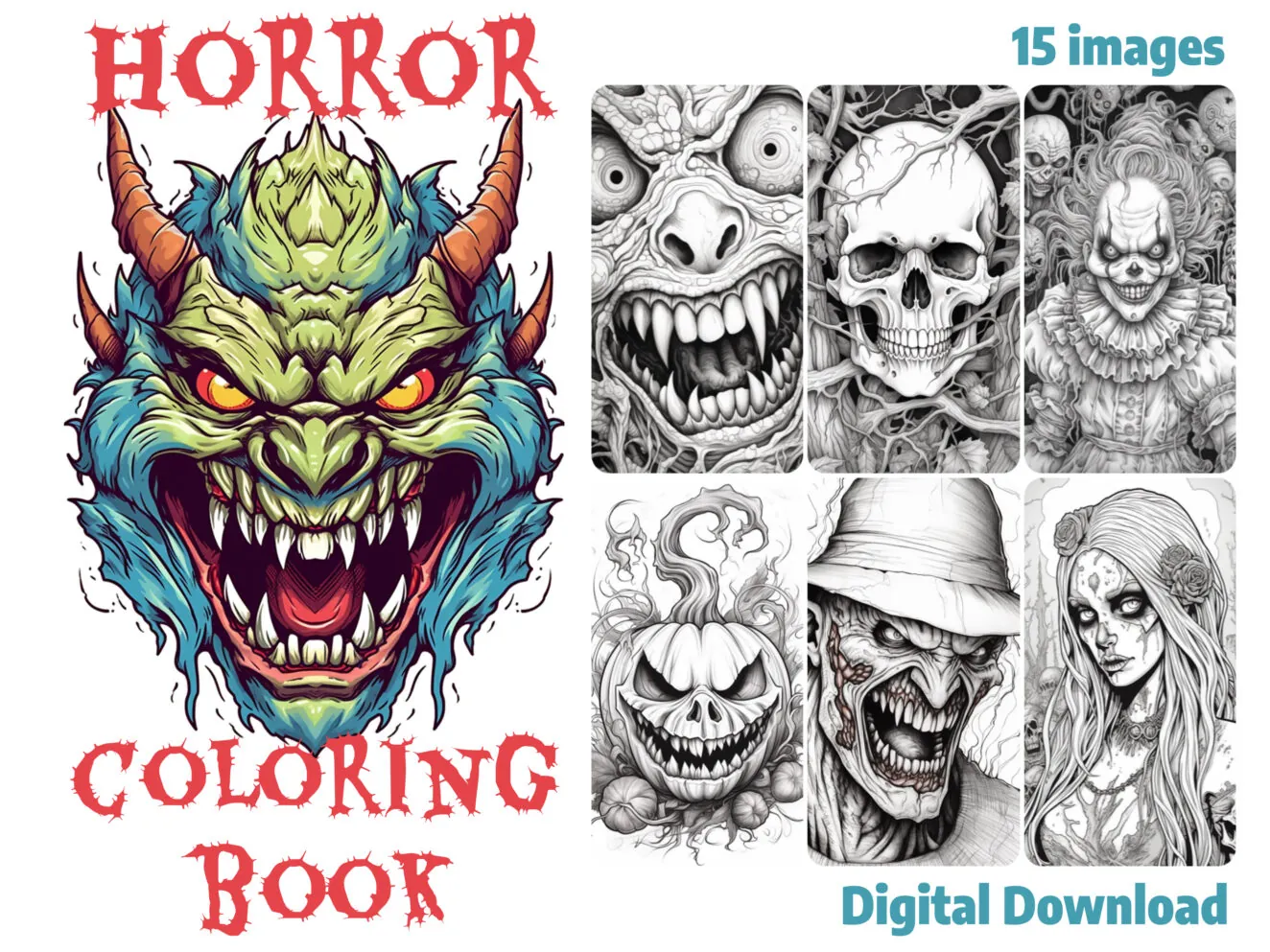
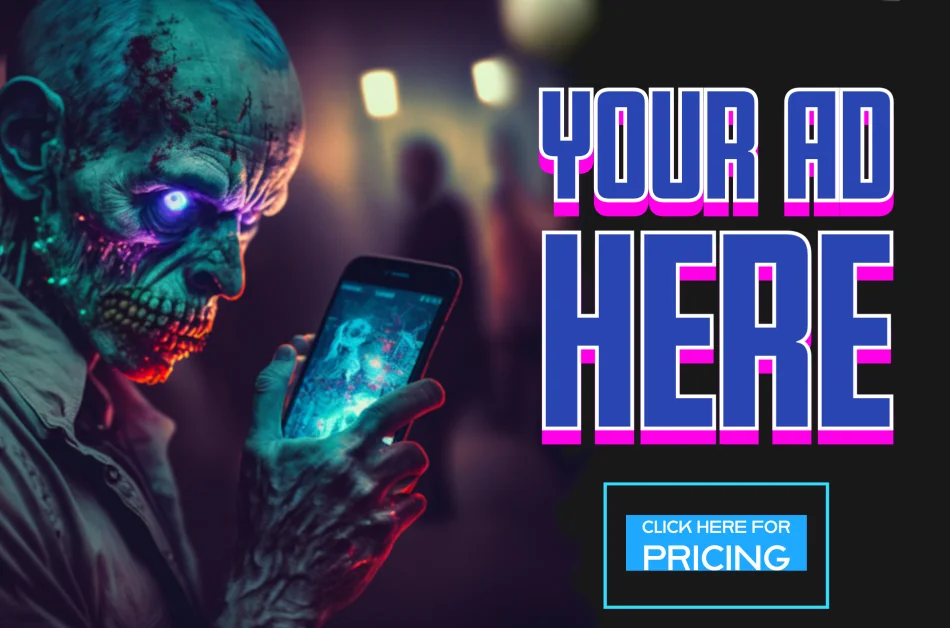















You must be logged in to post a comment Login